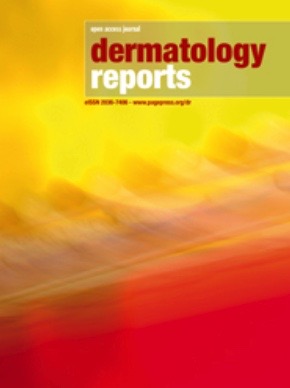Translation and validation of patient-oriented eczema measure in the Greek language
All claims expressed in this article are solely those of the authors and do not necessarily represent those of their affiliated organizations, or those of the publisher, the editors and the reviewers. Any product that may be evaluated in this article or claim that may be made by its manufacturer is not guaranteed or endorsed by the publisher.
Authors
Translating and validating the Greek version of the Patient Oriented Eczema Measure (POEM) was our goal. A parallel backtranslation process was used to translate POEM. A total of fiftynine adult atopic dermatitis patients were enlisted to assess validity and reliability. Through patient interviews with physicians, a questionnaire comprising demographics, POEM, and the dermatology life quality index (DLQI) was filled out. 3-7 days after the first visit, a second POEM completion was conducted. The POEM items conducted with study participants demonstrated a good level of internal consistency (Cronbach’s alpha = 0.88), and no overall floor and ceiling effects were found. There was a significant correlation between the DLQI and POEM scores (Spearman rho =0.71; p<0.001). The POEM score between interviews showed an average intraclass correlation coefficient (95% confidence interval) of 0.89 (0.80, 0.94), indicating good to excellent test-retest reliability. Patient-reported outcome measures are becoming more and more common in Greece, so it’s critical to have access to Greek translations of validated instruments that are frequently used in literature.
How to Cite

This work is licensed under a Creative Commons Attribution-NonCommercial 4.0 International License.








